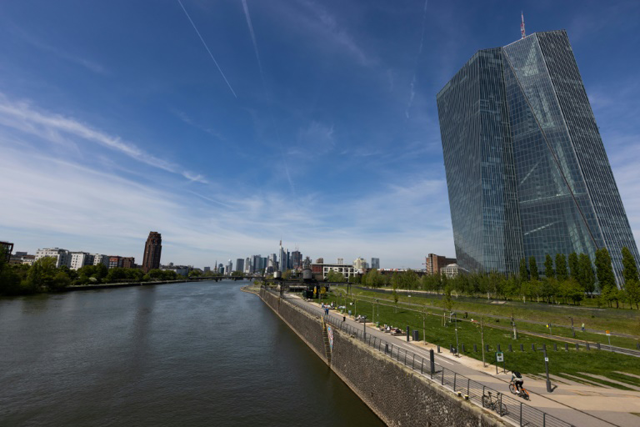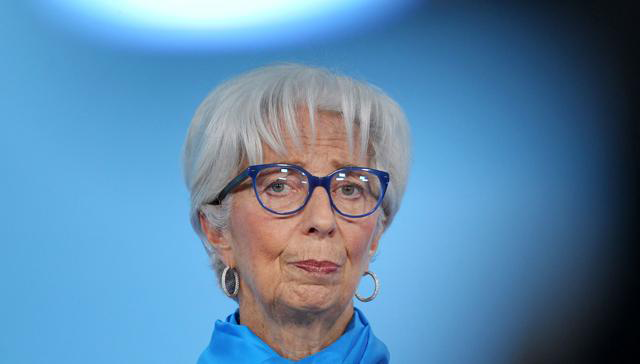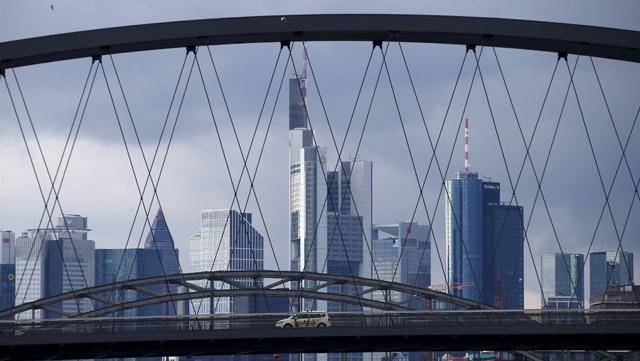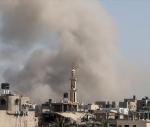You are here
IMF slashes eurozone 2022 growth forecast on Ukraine war
By AFP - Apr 19,2022 - Last updated at Apr 19,2022

In this file photo taken on April 12, people shop at a grocery store in Monterey Park, California (AFP photo)
PARIS — The war in Ukraine will heavily weigh down on economic growth in the eurozone, the International Monetary Fund (IMF) said on Tuesday, as the conflict wreaks havoc on energy prices and the manufacturing sector.
The IMF revised its eurozone growth forecast for 2022 to 2.8 per cent, down from 3.9 per cent in its January estimate, with the region's biggest economy, Germany, taking a heavier hit.
"The main channel through which the war in Ukraine and sanctions on Russia affect the euro area economy is rising global energy prices and energy security," the IMF said in its World Economic Outlook report.
The war has hurt some countries like Italy and Germany more than other European nations because they had "relatively large manufacturing sectors and greater dependence on energy imports from Russia", the IMF said.
Germany's economy is now expected to grow by 2.1 per cent this year, down from 3.8 per cent previously. Italy will also take a heavy hit, with growth of 2.3 per cent compared to an earlier forecast of 3.8 per cent.
After Moscow's invasion in February, the West including eurozone countries unleashed sanctions on Russia, affecting its financial system, aviation sector and other major parts of its economy.
Nearly two months later, prices are rising. Oil remains above 100 dollar per barrel after reaching historic highs in March, while the price of gas, wheat, aluminium, nickel and other raw materials have soared.
As a result, consumer prices in the eurozone have surged to 7.5 per cent, an all-time high.
ECB holds steady
The global economy was pummelled by the pandemic in 2020, but it began to recover last year.
The IMF had predicted last October that eurozone growth would be 4.3 per cent in 2022 before lowering the forecast in January due to a global supply chain crisis and the emergence of the Omicron variant of the coronavirus.
The IMF's latest report also lowered the eurozone's growth outlook for 2023 to 2.3 per cent, down from 2.5 per cent previously.
But it slightly increased its forecast for Germany to 2.7 per cent. Italy's growth, however, will slow further to 1.7 per cent.
The war was "severely affecting the euro area economy", European Central Bank (ECB) Chief Christine Lagarde said last week, pointing to a fall in economic confidence and persistently high energy costs for households and businesses.
The ECB last month slashed its growth forecast for 2022 to 3.7 per cent from 4.2 per cent previously predicted, and warned inflation would soar in the eurozone area, but it has yet to follow the US Federal Reserve in raising rates to tame prices.
Similarly, the Organisation for Economic Cooperation and Development said in March that eurozone growth risked being cut by up to 1.4 percentage points while inflation would increase by 2.5 percentage points over a year if the war's impact proves to be lasting.
Related Articles
BRUSSELS — Economic growth in the eurozone contracted in the third quarter, data showed on Tuesday, hit by the European Central Bank's (ECB'
DAVOS — The eurozone economy will fare "a lot better" this year than initially feared, European Central Bank (ECB) chief Christine Lagarde s
FRANKFURT am MAIN — Inflation in Europe's largest economy Germany fell back sharply in March, preliminary official data showed on Thursday,




















